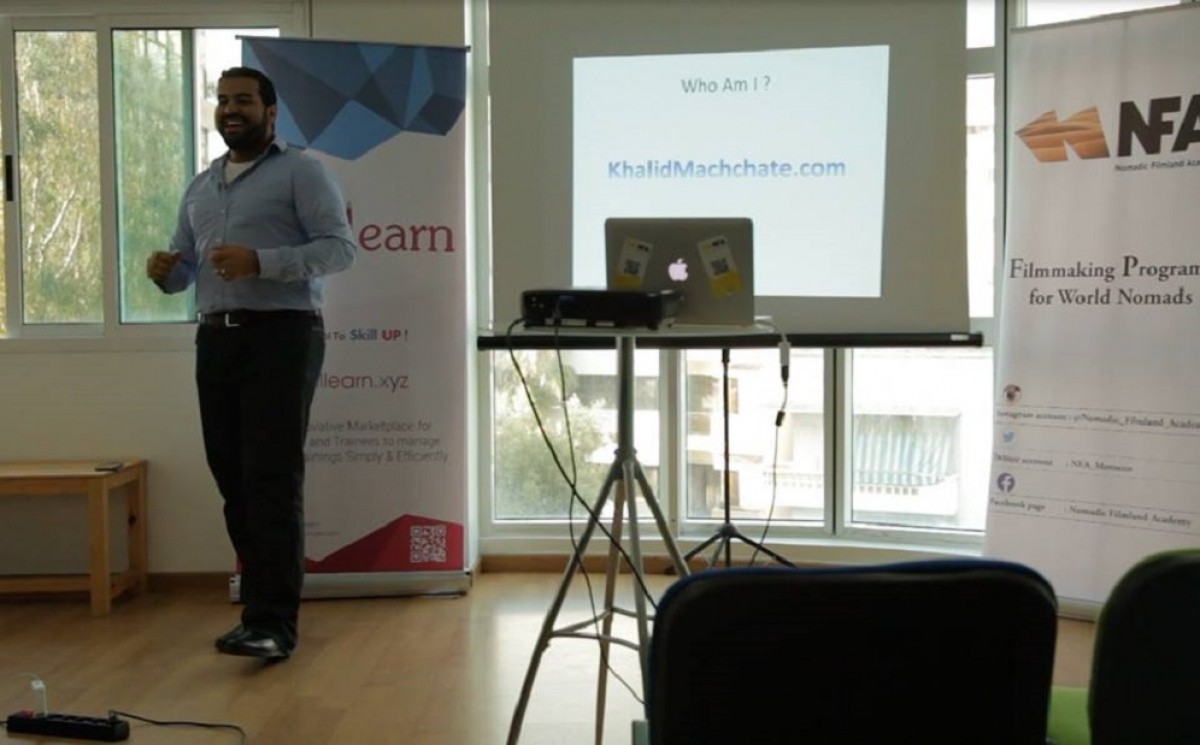.jpg)
_1-itok=GFMKQ6A9.jpg)
For one of the finalists of Challenge 22's second cycle, improving the emergency response procedures for accidents is a personal issue. Khalid Machchate and Wissal Farsal, a Moroccan team of innovators taking part in the Supreme Committee for Delivery & Legacy (SC)'s regional innovation award, were motivated to enter Challenge 22 after one of Khalid's family members had an accident and there was a long wait for the emergency services.
The team developed an easily installable device for cars, called 'SoS Sante', which works on accident detection by sending a distress signal to the nearest emergency centre. It communicates the accident location, the severity of the incident and the profiles of the passengers, including their health record, insurance details and any other relevant information from a database the team put together.
Speaking about the development of the project idea, team leader Machchate said: "After first creating an app, we decided to focus more on the serious accidents where every minute is crucial and people don't have the chance to go through the app and call the nearest emergency centre. So we started working on automating that process."
"In 2016, we started to develop the prototype and an MVP (minimum viable product). We then distributed a pilot of the MVP and tested it with cars. We are now in the final iteration before we go fully to market." Machchate added.
Based on their initial research, the team found that most emergency hotlines have a centralised system for reporting accidents, fires and all kinds of emergencies. It takes around 17 – 20 minutes just to get an emergency vehicle dispatched using this system.
To improve the system, the team's first step was building a database of the emergency centres with their numbers and locations. Using this information, they devised an app to contact the nearest emergency centre at the touch of a button.
With the developed prototype, the SoS Sante team participated in a global startup championship, where they won the Screendy Smart Cars Innovation Cup at DevoxxMA. They also won the Entrepreneurship First Prize at Intel Innovation Week. Following this success, they were incubated for six months, which gave them a space to work on their prototype and the chance to connect with insurance experts, healthcare specialists and professionals in emergency services from around the world.
Talking about the future of SoS Sante, Machchate added: "The next step is to have a discussion with the government to see how we can integrate this into the emergency system here in Morocco. We also have the flexibility to implement the system into the different emergency procedures in the other countries in the Arab region. What we hope to achieve after winning Challenge 22 is to be able to develop the system for use in Morocco and Qatar, and to be a part of the support infrastructure for the 2022 FIFA World Cup Qatar."
The SoS Sante concept is one of 12 ideas in the internet of things category that made it to the final of Challenge 22. Of the total number of submissions selected for the final round, eight came from Qatar; five from Jordan; four from Saudi Arabia; three from Egypt; two from Oman, Tunisia and the UAE; and one concept was selected from both Kuwait and Morocco.
The winners of Challenge 22's second cycle will be announced in October 2017 as part of Summit 22, which will bring together regional and international innovators and entrepreneurs to share and discuss their experiences. Winning teams or individuals will receive USD 15,000 in cash prizes and will then be given the opportunity to work with scientists and researchers in the region to begin turning their ideas into reality.

